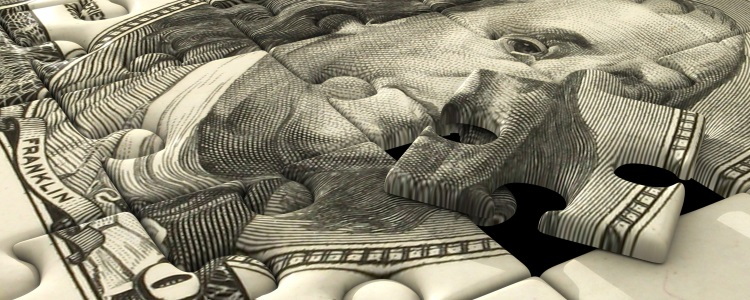While we want to believe that everyone out there is an Honest Abe, unfortunately, scammers are abundant – but they’re not always easy to spot. Here are some common car buying scams to be on the lookout for.
Scams to Watch Out for When Car Buying
1. Spot Delivery
A spot delivery, also called yo-yo financing, is when the dealership says you're all good to go and you can take the car home even though the financing hasn’t officially gone through yet. What may happen, however, is the dealer calls you to inform you that you have to come back to the dealership because your loan request was denied – and if you want to keep the vehicle, you’ve got to figure something out.
What often happens with a spot delivery is that you have to return to the dealership and get a loan that’s not as good of a deal as you were told you were going to get. This can mean a longer loan term, a higher interest rate, or possibly, that you’re required to put more cash down.
While this technically isn’t an outright scam – since you’re still paying and getting a vehicle – it’s more of a tactic used by unscrupulous dealerships. And to avoid falling into a spot delivery, simply don’t leave the dealership with a car until you’re positive that all financing paperwork and underwriting is complete.
2. Gift card payments
If you’re looking to purchase a vehicle and the seller wants you to pay for it in gift cards, it’s likely a scam. Often, a scammer that asks for a payment in gift cards redeems the cards then drops off the face of the Earth. You lose the money and may never hear from them again. Gift cards can’t be refunded (in nearly every case), so you’d be out of your hard-earned cash for good.
3. Credit repair scams
While you’re shopping for a car online, you may see advice stating you should improve your credit score before applying for an auto loan. While this is good advice, since your credit score can make or break your eligibility for a car loan, be aware of credit repair scams.
Credit repair companies can’t do anything you can’t do – meaning they can’t simply increase your credit score because you paid them. They can assist you in removing errors from your credit reports by contacting your creditors for you, but that’s about it. If a credit repair company asks for a large payment upfront or promises to boost your credit score by a specific amount of points, it’s generally the sign of a scam.
4. Title-jumping
Title-jumping is when someone sells a car to a buyer without giving the buyer the title. This is illegal in every state. Unless the buyer and seller sign a title and transfer ownership, the sale is not legitimate. If you don’t have a title, you also can’t register a vehicle in your name. Don’t go through with a car purchase without a title, and avoid buyers who are reluctant to show you a title.
5. Title-washing
Title-washing is when someone takes a vehicle that has a branded title (such as flooded or salvage) and registers it in another state where the title can be “washed” and rebranded as clean. Then, they try to sell the car with the fake clean title. A good way to avoid this is by getting the Vehicle Identification Number (VIN) of the car you’re looking to buy and requesting a vehicle history report to get its actual history.
Quick Tips on Avoiding Car Buying Payment Scams
 Don’t wire money or give a stranger a cashier’s check until you’ve seen the vehicle and title, and have a bill of sale. If it’s a scam, you’re not likely to ever get the money back once the money is received and the scam is revealed.
Don’t wire money or give a stranger a cashier’s check until you’ve seen the vehicle and title, and have a bill of sale. If it’s a scam, you’re not likely to ever get the money back once the money is received and the scam is revealed.- Don’t pay for a car with a gift card. Gift cards are typically non-refundable, and if you get scammed, you’re out of luck.
- Avoid paying for a vehicle with peer-to-peer online payment services, such as Venmo or Cash App. These payment services typically state that car purchases are not covered, since their transaction services are meant to be between you and someone you know and not payment for services or big-ticket items.
- Payments for a vehicle through PayPal are not covered under their buyer/seller protection policy.
- If a seller asks you to pay for a car with a cryptocurrency, this should be a red flag. Cryptocurrency, such as bitcoin, is untraceable and non-refundable.
If a deal seems too good to be true, it just might be. Make sure to be prepared for your next car-buying experience, and do your homework on the vehicle, and the seller if you're not shopping with a known dealership.
Shop With a Local, Reputable Dealership
Avoiding a car-buying scam starts with shopping at a reputable dealership with an accredited lending institution. Most dealers are signed up with one or more lending partners, making car shopping a smooth experience if you’re eligible for financing.
And if you need bad credit lending resources, then a special finance dealership could be what you need.
Special finance dealers are signed up with subprime lenders that are equipped to work with many unique credit situations. If you want to get back on the road with a bad credit car loan, then start with us at Auto Credit Express. We’ve created a coast-to-coast network of special finance dealers, and we want to look for one in your local area. Complete our free car loan request form and we’ll get right to work!
















